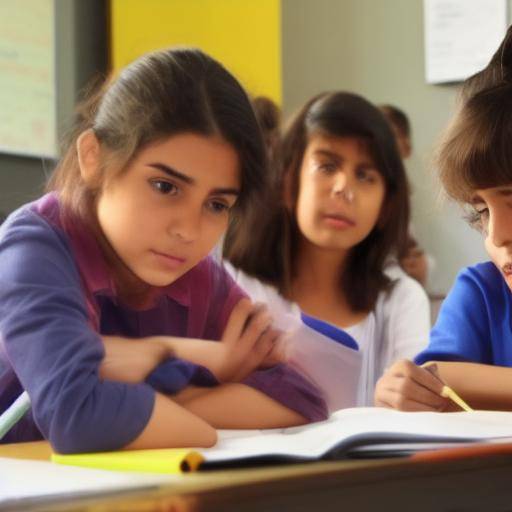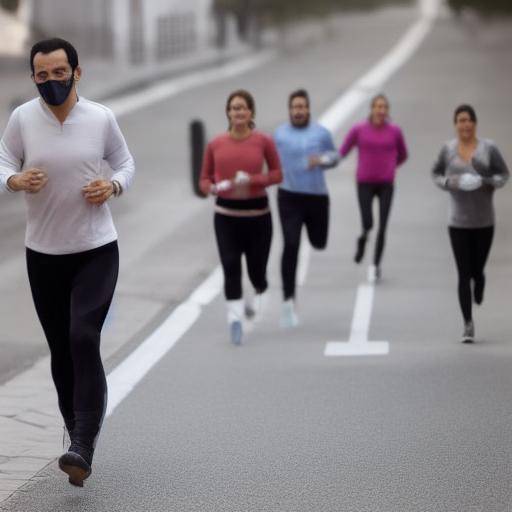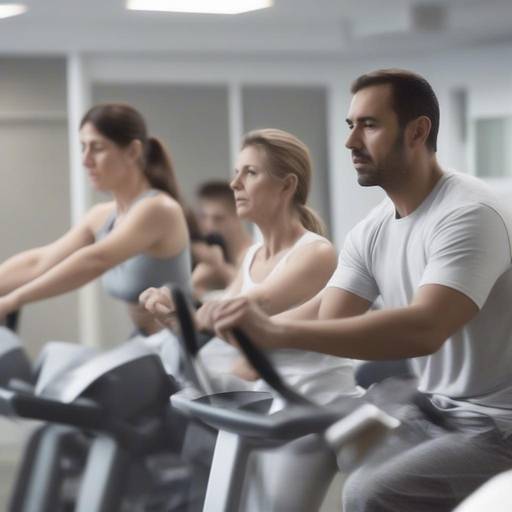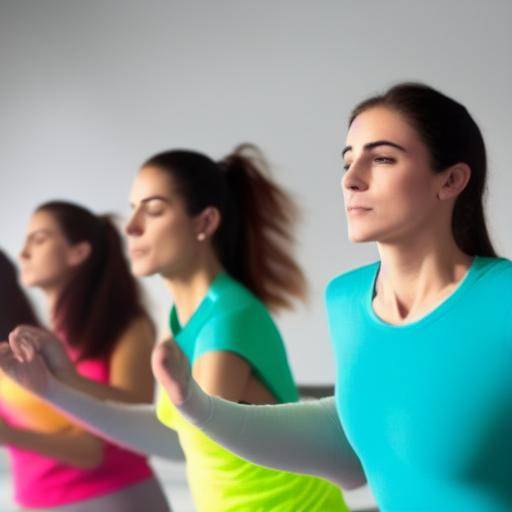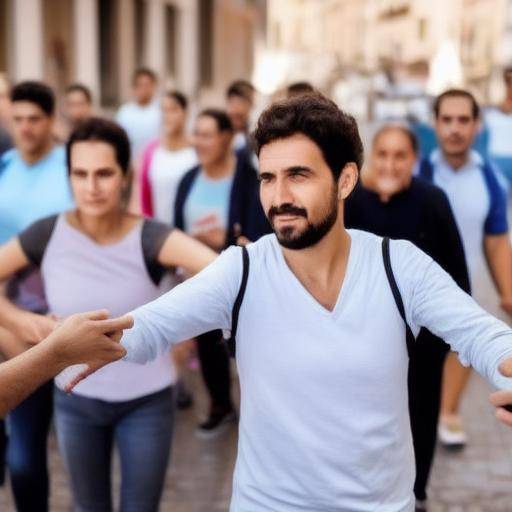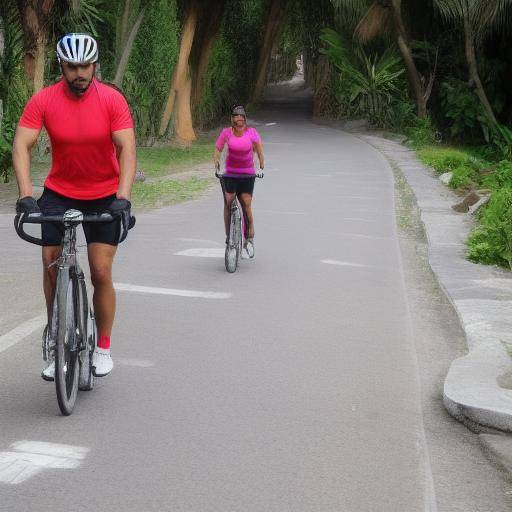
Self-confidence is a fundamental aspect in people's lives. It allows us to face challenges, pursue goals and deal with adversities positively. On the other hand, physical exercise not only contributes to physical health, but can have a significant impact on emotional well-being. In this article, we will explore how exercise can be a powerful tool to develop self-confidence. From its history to future trends, as well as practical advice and case studies, this guide will provide a detailed overview of this relationship between exercise and self-confidence.
Introduction
The development of self-confidence is a key process in building a full and satisfactory life. Trust in oneself not only drives personal and professional success, but also influences the way we relate to the world around us. People often look for ways to strengthen this quality, and physical exercise has emerged as a practice with the potential to significantly boost self-confidence. Throughout this article, we will thoroughly explore this connection, highlighting how exercise can be an effective tool to improve self-confidence and emotional well-being in general.
History and Background
To understand the relationship between exercise and self-confidence, it is important to explore the origins and evolution of both concepts throughout history. Throughout the centuries, exercise has played a vital role in human culture, from ancient Greece to contemporary practices. On the other hand, self-confidence has been a central theme in psychology and philosophy, influencing the way in which individuals face the challenges of life.
Impact of Exercise on Self-Confidence Throughout History
The concept of physical exercise has deep roots in the history of humanity. In ancient Greece, for example, worship of body and physical activity were fundamental values, and the positive impact of exercise on mind and spirit was recognized. As societies evolved, exercise took various forms, from military practices to modern sports disciplines. At the same time, self-confidence has been a recurring theme in the history of psychology and philosophy, with prominent figures such as Socrates and Nietzsche discussing its importance in human life.
Relevant Developments and Significant Daughters
The study of self-confidence has experienced significant developments over time. From the first psychological theories to modern approaches to personal development, academics and thinkers have explored in depth the factors that influence self-confidence. Similarly, exercise has evolved from simple physical practices to a diverse field ranging from fitness to high-performance sport. Recognition of exercise as a means of strengthening self-confidence is a relevant milestone in the intersection between physical activity and emotional well-being.
Anecdotes and Case Studies
The stories of individuals who have experienced a significant transformation in their self-confidence through exercise are worthy of attention. Relevant examples include athletes who overcome physical and mental challenges, as well as common people who find emotional strength through regular physical activity. These anecdotes provide a deep insight into how exercise can positively influence self-image and self-confidence. In analyzing these cases, it is clear that exercise is much more than just physical activity; it can be a catalyst for self-confidence and emotional well-being.
Detailed Analysis
Exercise not only has obvious benefits for physical health, but also has a significant impact on people's emotional well-being. To examine in detail how exercise influences self-confidence is essential to understanding its importance in personal development. The present benefits, challenges and trends in this area will be discussed in depth.
Benefits of Exercise for Self-Confidence
Regular exercise may have a positive influence on self-confidence in several ways. First, achieving goals and progress in physical performance can strengthen your perception of yourself. Overcoming physical challenges and progressive improvement in the physical state can increase self-efficacy, a fundamental aspect of self-confidence. In addition, the release of endorphins during exercise can improve the mood and promote a sense of well-being that contributes to greater self-confidence.
Challenges and Challenges
Although exercise has many benefits for self-confidence, it also faces important challenges. Lack of motivation, physical injury or constant comparison with others can undermine a person's self-confidence in their ability to exercise. It is crucial to effectively address these obstacles to maximize the benefits of exercise in the development of self-confidence.
Current Trends and Case Studies
At present, there is a growing interest in understanding the mechanisms through which exercise impacts on self-confidence. Investigations and case studies have revealed promising results, highlighting the correlation between regular exercise and greater self-confidence in various populations. From specific exercise programs focused on self-esteem to innovative approaches to psychological intervention based on physical activity, current trends reflect a growing recognition of the transformative potential of exercise in self-confidence.
Comprehensive review
The study of self-confidence and exercise encompasses a broad spectrum of practical applications, case studies and best practices. From coping skills to sports performance, there are multiple areas where exercise can positively impact self-confidence. In addition, it is important to evaluate both the perspective of experts and future projections to fully understand the implications of this relationship.
Practices and Best Practices
Integrating exercise into personal development programs and therapeutic approaches can be a powerful application to strengthen self-confidence. Specific strategies, such as participation in group activities or the establishment of achievable goals, can be effective tools to build self-confidence through exercise. Understanding these practical applications is essential to maximize the potential benefits of exercise in the development of self-confidence.
Opinions of Experts and Futures
Experts in psychology, sport and exercise have unique views on how exercise can influence self-confidence. Collecting your views and perspectives on the subject provides a more complete understanding of the complexities of this relationship. In addition, exploring future projections in this field provides valuable information on upcoming trends and possible research and development areas related to exercise and self-confidence.
Comparative analysis
Compare different approaches, modes of exercise and social and cultural contexts can provide an integral view of how exercise relates to self-confidence in various populations and scenarios. This comparative analysis is essential to understanding the multiple facets of this relationship and can reveal important nuances that influence the results.
Practical Tips and Actionable Advice
For those seeking to strengthen their self-confidence through exercise, it is essential to provide practical advice and actionable advice. Specific strategies and approaches can make a significant difference in the impact of exercise on self-confidence. Below are some key tips that can help you make the most of this powerful connection between exercise and self-confidence.
Regular and Varied Exercise
Consistency is fundamental in the development of self-confidence, so establishing a regular exercise routine is crucial. In addition, the variety in physical activities can provide opportunities to experience progress, which helps to strengthen self-image and self-efficiency.
Establishment of realistic and measurable targets
Establishing specific and achievable goals related to exercise can foster a sense of achievement and progress, key aspects of building self-confidence. Having clearly defined and measurable goals provides a clear direction and a sense of steady progress.
Participation in Social Activities Related to Exercise
Participation in group activities or in exercise communities can have a significant impact on self-confidence. Social interaction and mutual support can strengthen motivation and strengthen the positive perception of oneself.
Practice of Full Care and Gratitude
The incorporation of full care and gratitude practices in the context of the exercise may have substantial benefits in the development of self-confidence. These practices can amplify the awareness of personal progress and strengths, promoting a sense of trust rooted in authenticity and self-esteem.
Professional Guidance Search
Finding the guidance of exercise professionals and mental health can provide a solid framework to develop self-confidence through exercise. Experts can provide personalized advice, specific strategies and support necessary to maximize the transformative potential of exercise in self-confidence.
Expert Perceptions and Market Trends
The view of experts and current market trends provide a valuable perspective on the relationship between exercise, self-confidence and emotional well-being. By bringing together expertise and future projections, a holistic view of how this intersection will impact society and personal development in general can be obtained.
Interviews with Exercise and Mental Health Professionals
Interviews with exercise professionals, psychology and mental health provide a privileged view of effective strategies and approaches to strengthen self-confidence through exercise. Their experiences and recommendations offer a valuable perspective for those seeking to take advantage of this link effectively.
Analysis of Market Trends and Projections
Exploring current trends and market projections related to exercise and emotional well-being reveals significant insights on how society is adopting these practices and how they will evolve in the future. This analysis is fundamental to understanding changes in attitudes and behavior patterns that will influence the relationship between exercise, self-confidence and emotional well-being.
Case Studies and Practical Applications
Real case studies provide concrete examples of how exercise can influence self-confidence and emotional well-being. In reviewing these practical applications in various environments and contexts, a more comprehensive understanding of the mechanisms and outcomes of this relationship is obtained.
Examples of Exercise and Self-Confidence Programs
Reviewing specific programmes and approaches that integrate the exercise and development of self-confidence provides valuable insights on effective strategies and results achieved. These examples inspire new ideas and provide models to follow for those who want to implement similar interventions.
Results and Lessons Learned
When analysing the results and lessons learned from specific case studies, successful patterns and practices that have the potential to be replicated in different contexts can be identified. This analysis provides valuable information on how to maximize the impact of exercise on the development of self-confidence.
Future Trends and Predictions
Exploring emerging trends and predicting the future of the relationship between exercise, self-confidence and emotional well-being allows us to anticipate areas of growth and opportunities for innovation. In addition, it provides a strategic vision on how to make the most of this connection in the coming years.
Incorporation of Technology and Customization
Technology is playing an increasingly important role in supporting exercise and promoting emotional well-being. From fitness applications to tracking devices, technology integration offers opportunities to customize exercise experiences and foster self-confidence in innovative ways.
Comprehensive Health and Welfare Approaches
Comprehensive health care and emotional well-being is gaining ground, which involves integrating exercise practices with stress management strategies, mindfulness and mental health. These holistic approaches have the potential to enhance the impact of exercise on self-confidence by addressing multiple aspects of personal well-being.
Higher Ethphasis in Education and Consciousness
Education and awareness of the benefits of exercise for self-confidence and emotional well-being are profiled as areas of growth and influence. As society increasingly recognizes the importance of mental health, broadening understanding of how exercise can play a role in self-confidence will be crucial.
Development of Specific and Adapted Programs to Different Populations
The development of specific exercise programs designed to address individual needs and challenges in self-confidence will be a significant trend. Adapting exercise interventions to different groups and social contexts will maximize the effectiveness and relevance of these initiatives.
Conclusions and FAQs
In short, exercise is not only beneficial to physical health, but can also be a powerful tool to strengthen self-confidence and improve emotional well-being. By fully understanding this relationship, people can make the most of the transformative potential of exercise in their personal development. Here are some frequent questions that address relevant aspects of self-confidence, exercise and emotional well-being.
Frequently asked questions
1. How can I strengthen my self-confidence through exercise?
Explore the diversity of physical activities, set achievable goals and seek professional support in the field of exercise and mental health.
2. What specific benefits does exercise have for self-confidence?
Exercise can improve self-image, increase self-efficiency and promote a positive mood that contributes to greater self-confidence.
3. Is it necessary to perform a specific type of exercise to strengthen self-confidence?
No, the key is in consistency and variety in physical activities, allowing to experience progress that contributes to strengthening self-confidence.
4. What is the role of full attention and gratitude in the relationship between exercise and self-confidence?
Full attention and gratitude can amplify the awareness of personal progress, promoting a sense of trust rooted in authenticity and self-esteem.
5. How can technology support the development of self-confidence through exercise?
Technology can facilitate the personalization of exercise experiences, monitoring progress and participation in active communities, which contributes to strengthening self-confidence.
6. What are future trends in the relationship between exercise and self-confidence?
The integration of technology, comprehensive approaches to health and well-being, education and awareness, as well as the development of specific programmes for different populations, represent important future trends.
By approaching these questions with understanding and attention, individuals can take concrete steps to develop greater self-confidence through regular exercise practice, thus promoting comprehensive emotional well-being.
In conclusion, exercise can be a powerful ally in the development of self-confidence. From its historical origins to future trends, this practice has proven to be a determining factor in strengthening self-concept and self-esteem. By implementing strategies and practical advice, people can experience the positive impact of exercise on their self-confidence and emotional well-being. With a conscious and strategic approach, exercise can become a fundamental tool for cultivating a positive self-image and facing the challenges of life with determination and security.
By taking advantage of this relationship between exercise, self-confidence and emotional well-being, people can significantly improve their quality of life and achieve a higher degree of personal realization. With a solid understanding of this connection, it is possible to foster comprehensive development that positively impacts on multiple aspects of life. In this way, exercise becomes much more than a physical activity; it becomes a transformative means to strengthen self-confidence and emotional well-being.








